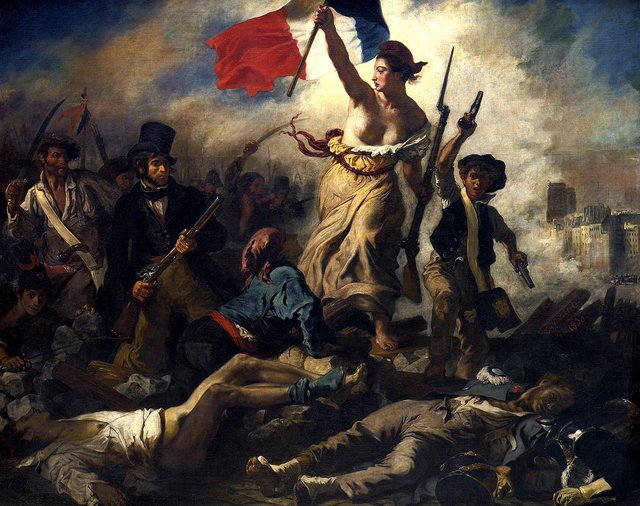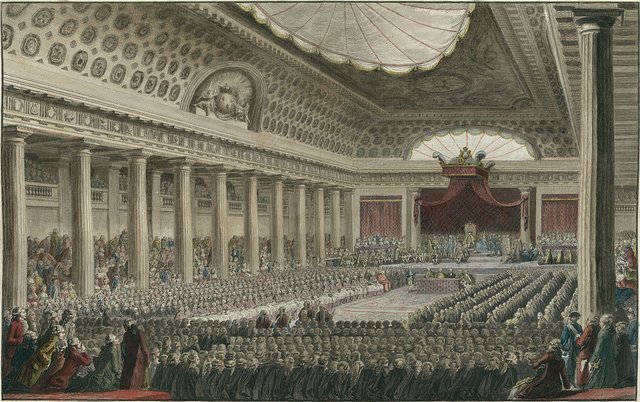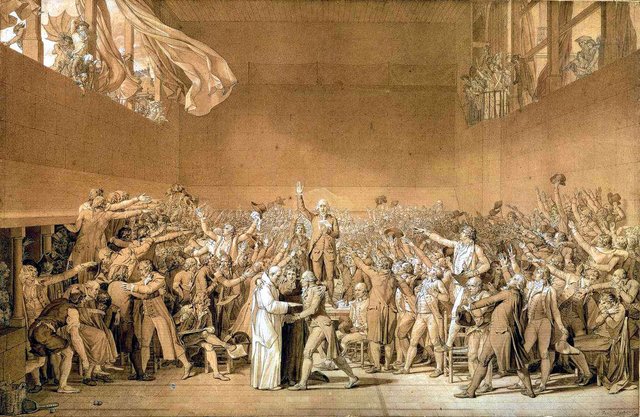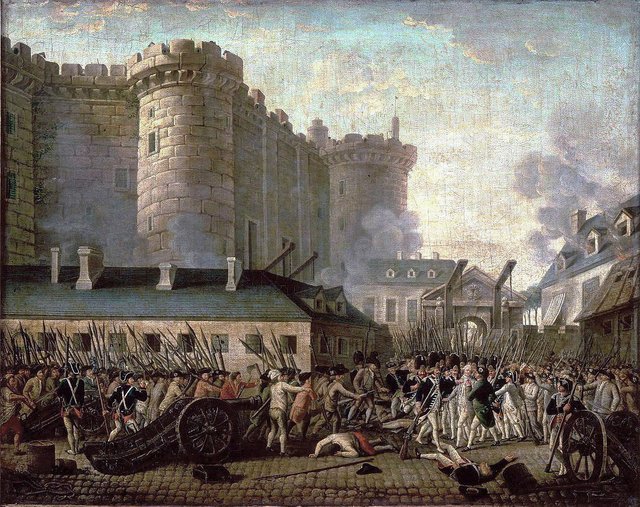The French Revolution |BeHistoryBuff|
The French Revolution
The French Revolution was a time of extensive social and political change in France that endured from 1789 until 1799, and was incompletely conveyed forward by Napoleon amid the later development of the French Empire. The Revolution toppled the government, built up a republic, experienced savage times of political turmoil, lastly finished in a fascism under Napoleon that quickly conveyed a large portion of its standards to Western Europe and past. Motivated by liberal and radical thoughts, the Revolution significantly adjusted the course of cutting edge history, setting off the worldwide decay of total governments while supplanting them with republics and liberal vote based systems.
The reasons for the French Revolution are unpredictable are still bantered among students of history. Taking after the Seven Years' War and the American Revolutionary War, the French government was profoundly owing debtors and endeavored to reestablish its monetary status through disliked tax collection plans. A long time of terrible harvests paving the way to the Revolution likewise aggravated prominent hatred of the benefits delighted in by the pastorate and the nobility. Requests for change were defined as far as Enlightenment beliefs and added to the assembly of the Estates-General in May 1789. The principal year of the Revolution saw individuals from the Third Estate taking control, the attack on the Bastille in July, the entry of the Declaration of the Rights of Man and of the Citizen in August, and a ladies' walk on Versailles that constrained the regal court back to Paris in October. A focal occasion of the primary stage, in August 1789, was the nullification of feudalism and the old principles and benefits left over from the Ancien Régime.
Outer dangers firmly molded the course of the Revolution. The Revolutionary Wars starting in 1792 at last highlighted French triumphs that encouraged the victory of the Italian Peninsula, the Low Countries and most domains west of the Rhine – accomplishments that had evaded past French governments for a considerable length of time. Inside, prevalent unsettling radicalized the Revolution altogether, finishing in the ascent of Maximilien Robespierre and the Jacobins. The tyranny forced by the Committee of Public Safety amid the Reign of Terror, from 1793 until 1794, built up value controls on sustenance and different things, canceled subjugation in French settlements abroad, dechristianised society through the production of another timetable and the ejection of religious figures, and secured the outskirts of the new republic from its adversaries. Expansive quantities of regular folks were executed by progressive tribunals amid the Terror, with assessments going from 16,000 to 40,000.
Causes
Students of history have indicated numerous occasions and elements inside the Ancien Régime that prompted to the Revolution. Rising social and financial disparity, new political thoughts rising up out of the Enlightenment,economic blunder, natural variables prompting to horticultural disappointment, unmanageable national debt,and political botch with respect to King Louis XVI have all been refered to as laying the foundation for the Revolution.
Through the span of the eighteenth century, there rose what the thinker Jürgen Habermas called the possibility of "general society circle" in France and somewhere else in Europe.Habermas contended that the prevailing social model in seventeenth century France was a "representational" culture, which depended on an uneven need to "speak to" power with one side dynamic and the other passive.A culminate illustration would be the Palace of Versailles which was intended to overpower the faculties of the guest and persuade one regarding the enormity of the French state and Louis XIV.Starting in the mid eighteenth century saw the presence of "the general population circle" which was "basic" in that both sides were dynamic.
Beginning in the mid eighteenth century saw the presence of "the general population circle" which was "basic" in that both sides were active.Starting in the mid eighteenth century saw the presence of "people in general circle" which was "basic" in that both sides were active.The grouping of occasions prompting to the Revolution incorporated the national government's monetary inconveniences brought on by a wasteful assessment framework and consumption on various huge wars.The endeavor to test British maritime and business control in the Seven Years' War was an exorbitant catastrophe, with the loss of France's pilgrim belonging in mainland North America and the pulverization of the French Navy.French powers were remade and performed all the more effectively in the American Revolutionary War, however just at gigantic extra cost, and with no genuine increases for France aside from the information that Britain had been humbled. France's wasteful and out of date money related framework couldn't fund this debt.Faced with a budgetary emergency, the ruler called an Estates General Assembly of Notables in 1787 without precedent for over a century.
Then, the illustrious court at Versailles was disengaged from, and unconcerned with the heightening emergency. While in principle King Louis XVI was a flat out ruler, by and by he was frequently uncertain and known to down when confronted with solid resistance. While he reduced government uses, adversaries in the parliaments effectively impeded his endeavors at establishing genuinely necessary changes. The Enlightenment had delivered numerous scholars, pamphleteers and distributors who could advise or excite popular supposition. The resistance utilized this asset to assemble general sentiment against the government, which thus attempted to subdue the underground writing.
Affirmation of the Rights of Man
On 26 August 1789 the Assembly distributed the Declaration of the Rights of Man and of the Citizen, which involved an announcement of standards instead of a constitution with legitimate impact. The Declaration was specifically affected by Thomas Jefferson working with General Lafayette, who presented it.
The National Constituent Assembly worked as a governing body, as well as a body to draft another constitution.
Abolition of feudalism
On the night of 4 August 1789 the National Constituent Assembly canceled feudalism (various laborer revolts had nearly conveyed feudalism to an end) in the August Decrees, clearing without end both the seigneur privileges of the Second Estate and the tithes (a 10% assessment for the Church) accumulated by the First Estate. Over the span of a couple of hours nobles, ministry, towns, areas, organizations and urban areas lost their uncommon benefits.
~ Thanking You
Ishan Pandey
Source :- https://en.wikipedia.org/wiki/Abolition_of_feudalism_in_France
https://archive.org/details/falloffeudalismi00herbrich






Are you aware that Delacroix painting has nothing to do with the French revolution of 1789?
amazing !!
Very good blog entry